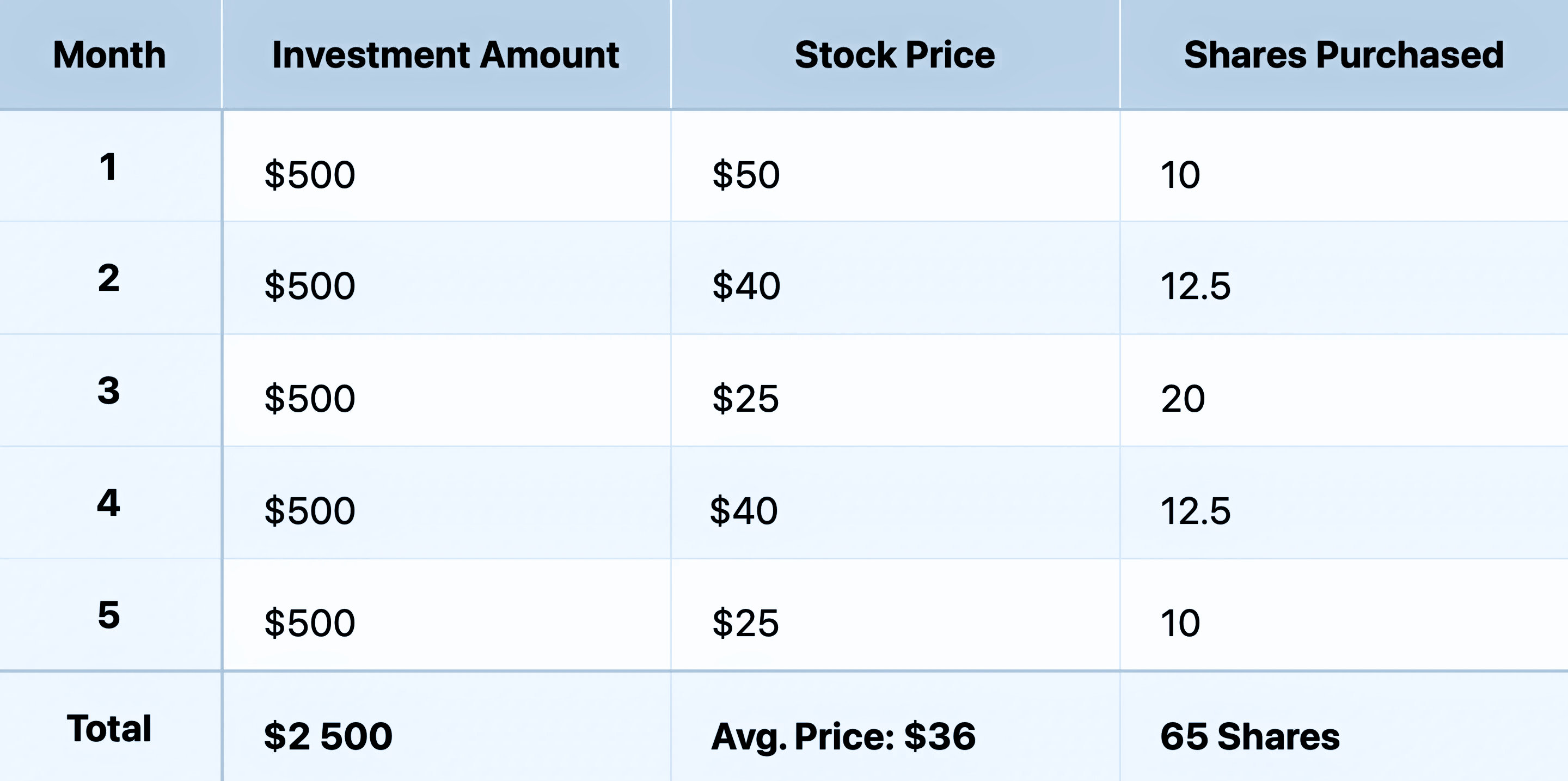
Dollar-Cost Averaging (DCA): Building Wealth Without the Guesswork

Dollar-cost averaging (DCA) is an investment strategy in which equal amounts are invested regularly, regardless of market conditions. This approach reduces emotional stress, smooths market volatility, and promotes disciplined investing. Though this strategy can prevent losses from poorly timed lump-sum investments, it may also limit gains in a consistently rising market. Investors looking for steady growth without guesswork often prefer DCA for building long-term wealth.

It's a sunny Saturday morning in New York City, and Eddie is walking through Central Park with his Uncle Warren. Eddie is feeling nervous about investing his recent work bonus.
"The market's always jumping up and down like Max chasing squirrels."
Eddie mentioned his dog, Max. "How am I supposed to know when it's time to jump in?"
Warren chuckled and pointed toward an ice cream stand nearby. "Ever tried to eat an ice cream cone all at once, Eddie?"
Eddie laughed and shook his head. "Of course not."
"Exactly," Warren smiled. "You take small bites to avoid a brain freeze, right? Dollar-Cost Averaging (DCA) is like eating ice cream slowly and steadily."
"Imagine," Warren continues, "you decide to invest $500 each month into your favorite tech stock. In January, the stock might be $50 per share, and you grab ten shares. If the price dips to $40 in February, you get twelve-and-a-half shares. By consistently investing the same amount, you naturally buy more shares at lower prices and fewer at higher prices."

By consistently investing approximately the same amount each month, Eddie now owns 65 shares at an average cost of $36.00 per share.
How It Works
Dollar-Cost Averaging (DCA) means consistently investing the same amount of money at regular intervals, no matter what's happening in the market. This way, you automatically buy more shares when prices drop and fewer when prices rise, averaging your overall cost per share.
✅ Pros
- Reduces Stress: You don’t need to worry about timing the market.
- Limits Risk: By spreading investments over time, you reduce the risk of investing a large sum right before the market dips.
- Disciplined Investing: It encourages regular investment, helping you steadily grow your portfolio.
⛔️ Cons
- Potentially Lower Returns: If the market steadily rises, you might miss out on investing a lump sum early when prices are lower.
- Transaction Costs: Frequent investments can add up due to transaction fees (though many platforms now offer fee-free investing).
"So, Warren," Eddie asked as they passed the Turtle Pond, "it's basically taking small bites instead of gobbling it all at once, right?"
"You've got it right,” Warren smiled. "Investing steadily, consistently, and without panic—that's the real secret sauce."

Dr. Viktor Kalm is a Senior Investment Analyst at Alpha Spread. He has over seven years of experience in corporate finance, specializing in financial modeling, business valuation, and strategic planning services. Previously, as a hedge fund manager, he focused on private equity management, consistently delivering positive returns to his clients.

Dr. Viktor Kalm is a Senior Investment Analyst at Alpha Spread. He has over seven years of experience in corporate finance, specializing in financial modeling, business valuation, and strategic planning services. Previously, as a hedge fund manager, he focused on private equity management, consistently delivering positive returns to his clients.

























 You don't have any saved screeners yet
You don't have any saved screeners yet
